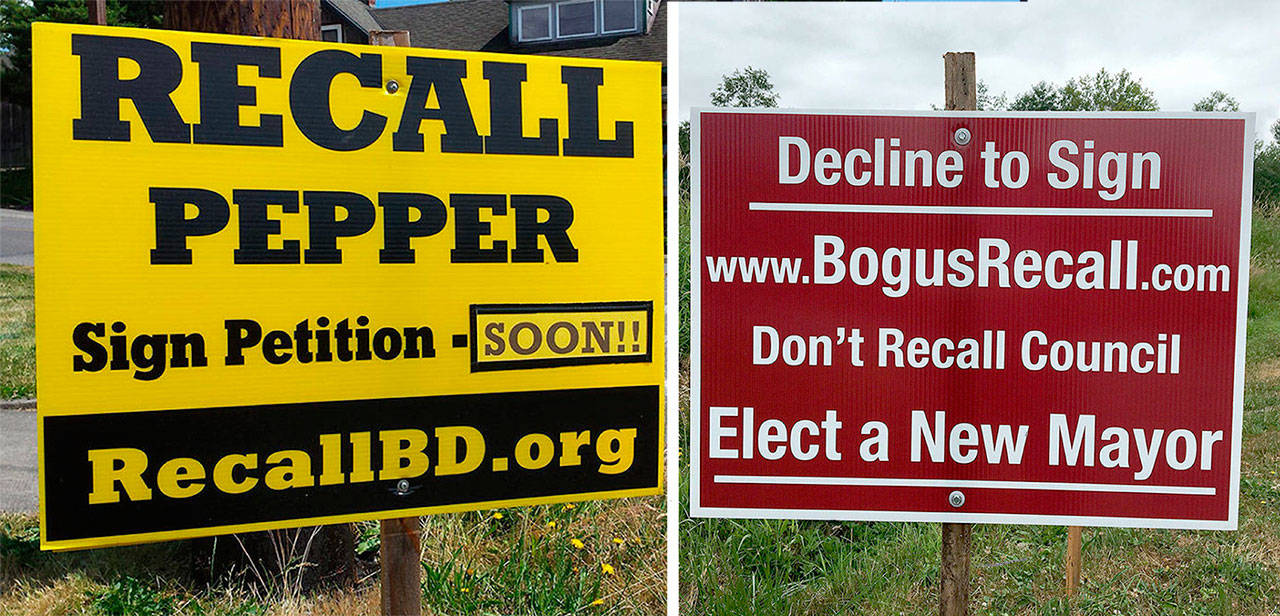The State Supreme Court has approved three recall charges against Black Diamond Councilwoman Pat Pepper.
This case is Washington’s fifth-ever recall case approved by the courts. Another recall effort against Yakima County Clerk Janelle Riddle was approved at the same time on the same day.
However, some changes were made to the charges against Pepper, so the signature gathering process for the election has restarted, said King County Elections spokesperson Kafia Hosh.
The recall effort officially began April 10 when Neighbor to Neighbor Black Diamond filed papers with the King County Superior Court.
Judge Beth Andrus ruled May 10 four of the five charges against Pepper were legally and factually significant to move forward with a recall.
“A review in court must not consider the truthfullness of the charges, but instead must accept the allegations as true, and then determine whether those charges, if true, support the conclusion that the officer abused her position,” Andrus said during her ruling. “I do not decide whether the allegations are true or not true, and therefore by finding the allegation legally and factually sufficient, I would not be finding that Ms. Pepper violated that law — merely that there is sufficient evidence to support the allegation to let that go to the electorate to decide.”
Andrus approved the charges alleging Pepper violated the state Open Public Meetings Act, violated her oath of office by cancelling or not attending meetings, failed to pass a budget by deadline and improperly voted to amend city contracts with consultants on the city’s Master Development Review Team, which works to oversee the permitting process of developer Oakpointe’s projects in the city.
The fifth charge — that Pepper hindered the ability of the city to receive legal services by firing former City Attorney Carol Morris — was ruled legally insufficient to approve.
The Supreme Court met in an en banc conference on Sept. 7 to review the lower court’s decision, and whittled down the approved charges from four to three.
The court found the OPMA charges, the violations of her oath of office charges, and the failure to pass a city budget charges legally and factually significant to allow voters to decide whether Pepper should remain in her elected position.
The charge that Pepper voted improperly to modify the MDRT team was legally insufficient to move forward onto the ballot.
“(The superior court) concluded that once a developer’s permit rights have vested under law, the city council members cannot interfere with those rights merely because they do not think the permits should have been issued,” the Supreme Court wrote. “We agree with the superior court’s legal conclusions about vested rights. However, we find the evidence presented to support this charge insufficient.”
In between the court reviews, Neighbor to Neighbor gathered enough signatures to have the county set an election date for Dec. 5.
But since the Supreme Court struck down another charge as insufficient, Neighbor to Neighbor now has 180 days from Oct. 27 to once again collect the necessary 366 signatures.
“If the required number of signatures are submitted, an election on the recall charges will be scheduled in accordance with state code,” Hosh said,
Neighbor to Neighbor collected 639 signatures during their first round of collection.
Pepper’s lawyer Dennis Reynolds of the Bainbridge Island-based Dennis D. Reynolds Law Office said they are considering a motion for the court to reconsider its findings.
“All the recall charges include other councilmember actions or non-actions but they are not challenged,” Reynolds wrote in an Oct. 30 email. “In other words, the recall is personal, not substantive in terms of any negative impact on city operations. But what is really questioned by the recall is the conduct of a majority of the City Council.”
Washington state Supreme Court ruling on Pat Pepper recall by Ray Still on Scribd


